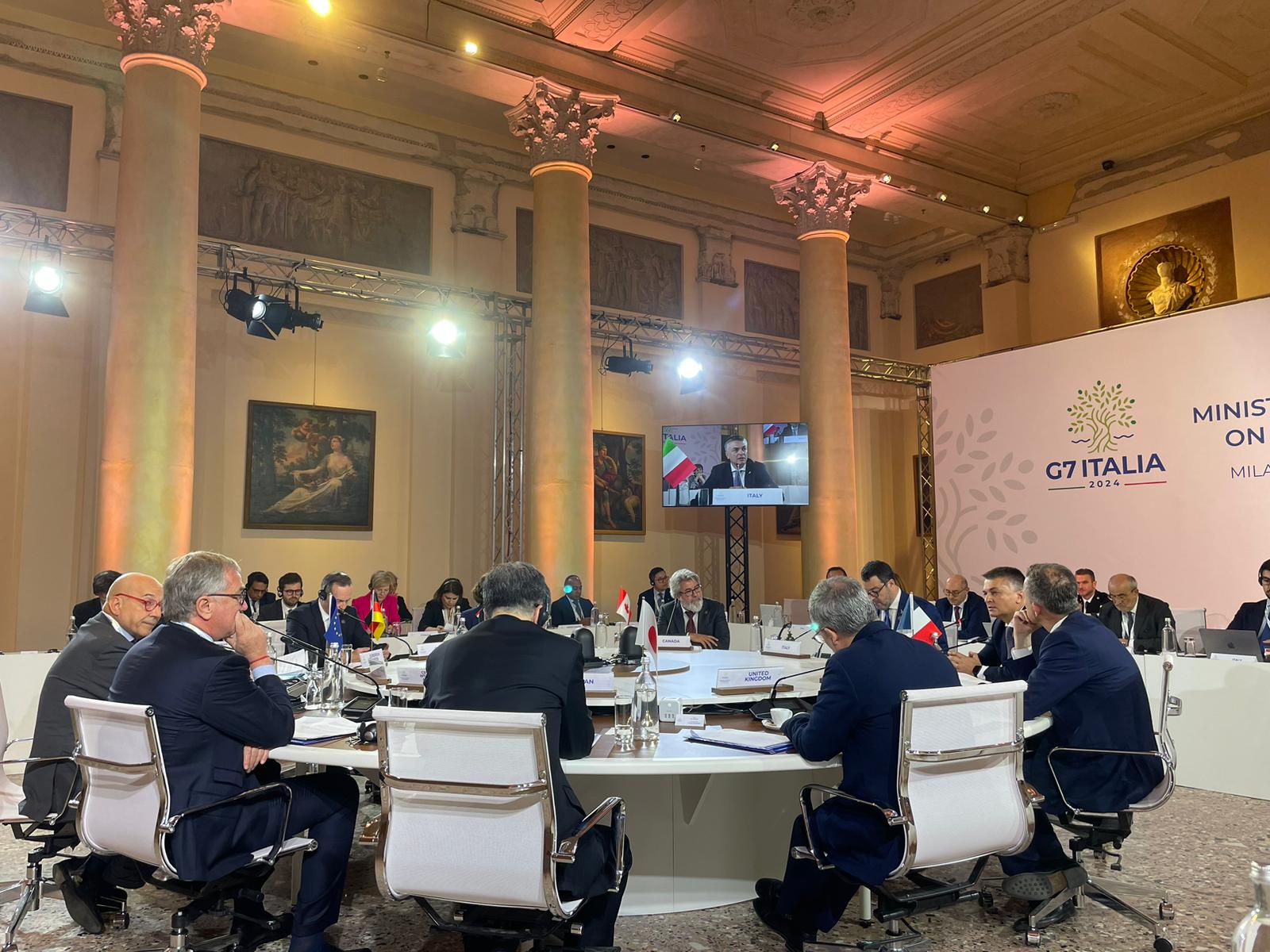Zero Emission Shipping Fund proposal submitted to UN to deliver on shipping’s net zero targets

• The International Chamber of Shipping (ICS), the Commonwealth of The Bahamas, and the Republic of Liberia submit detailed proposal to UN IMO for a Zero Emission Shipping Fund to accelerate transition to net zero by 2050.
• Fund will incentivise accelerated production and uptake of zero GHG marine fuels and technologies and provide billions of dollars to support transition in developing countries.
• Governments urged to approve fit-for-purpose proposals to meet their commitment to adopt a maritime GHG emissions pricing mechanism in 2025.
The International Chamber of Shipping (ICS) has submitted a detailed, fit-for-purpose proposal to shipping’s global regulator, the UN International Maritime Organization (IMO), for a Zero Emission Shipping Fund (ZESF).
In recognition of the urgency to move forward with workable solutions to meet ambitious net zero targets, shipowners globally have agreed to mandatory contributions on ships’ greenhouse gas (GHG) emissions to raise billions of dollars annually. The purpose is to accelerate transition by the global commercial shipping fleet to net zero emissions by 2050 and support the maritime GHG reduction efforts of developing countries.
The shipping industry’s updated proposal is co-sponsored by Bahamas and Liberia (two of the world’s largest flag State administrations, measured in gross tonnage). The proposal builds on the “feebate” concept put forward by the Government of Japan and support from EU States at IMO for a flat rate “levy-based” global contribution system. Significantly, the updated proposal adds a structure for transparency and accountability for how the billions of dollars raised will be used, including those funds to be allocated for use in developing countries.
Guy Platten, ICS Secretary General, explained:
“The transition to net zero shipping must be truly global. Otherwise, it will not succeed. ICS fully supports the net zero goal which IMO has agreed for shipping. The 2050 goal will only remain plausible if government negotiators now roll up their sleeves to develop the regulations needed to establish the Zero Emission Shipping Fund. A global GHG pricing mechanism for shipping urgently needs to be agreed on next year, which will de-risk investment in zero GHG marine fuels and provide billions of dollars of funds to support developing countries.”
“The Governments of Bahamas and Liberia and the global shipping industry have come forward with a carefully thought-out mechanism, which is equitable, transparent and simple. The first IMO target for 2030 is less than six years away. If we don’t achieve a take-off point in the production and uptake of zero GHG marine fuels by 2030, it’s hard to see how net zero will be achieved by 2050.”
“The groundwork has been done and the regulatory architecture has been carefully laid out. All that is needed is political will from governments to implement this fit-for-purpose solution quickly and effectively.”
The Zero Emission Shipping Fund and the “feebate” mechanism will be considered by IMO Member States at their next round of GHG negotiations in March. Governments have already unanimously committed to developing a GHG pricing mechanism for international shipping by 2025. If governments agree, the ZESF will be approved next year to help achieve net zero GHG emissions from shipping by or close to 2050, in line with the ambitious GHG reduction targets adopted by IMO Member States.
Under the proposal, contributions from ships per tonne of CO2e emitted will be used to reduce the significant cost gap between zero GHG fuels and conventional fuel oil, providing financial rewards (“feebates”) to ships for the GHG emissions prevented by use of these new marine fuels.
The transparent and accountable proposal will include support for the production of zero/near-zero marine fuels and the roll-out of new bunkering infrastructure in developing countries’ ports worldwide, as well as supporting training in the safe use of new fuels.
A detailed impact assessment has already been conducted by Clarksons Research for ICS that highlights that a contribution rate which adds a cost in a range between US$20 to $300 per tonne of fuel oil consumed would have no disproportionately negative impacts on national economies in terms of delivered cargo prices.
The Zero Emission Shipping Fund will allow the hard-to-abate shipping sector, which is completely dependent on fossil fuels and where the current use of zero GHG fuels is virtually zero, to achieve a “take-off” point in its use of more expensive ‘green’ fuels, such as ammonia, hydrogen, sustainable biofuels, synthetic methanol and synthetic LNG.
For the full proposal, please click here..
Zero Emission Shipping Fund
The Zero Emission Shipping Fund (ZESF), using a Fund and Reward (Feebate) mechanism, is currently the only proposal in the IMO negotiations about a maritime GHG emissions pricing mechanism which sets out in detail the necessary regulatory architecture that can guarantee the billions of US dollars of funding needed to help the shipping industry decarbonise, including billions of dollars to support developing countries.
The ZESF will be simple to implement globally and can realistically be finalised by governments for agreement by the IMO Marine Environment Protection Committee in early 2025 (MEPC 83) as required by the 2023 IMO GHG Strategy, which was agreed by MEPC 80 in July 2023.
ICS has provided IMO with a detailed impact assessment, which demonstrates that a contribution rate which adds a cost in a range between US$20 to $300 per tonne of fuel oil consumed would have no disproportionately negative impacts on national economies in terms of delivered cargo prices.
ICS calculates that to reach the IMO target for 5-10% of the energy used by shipping to come from zero/near-zero GHG sources by 2030, the cost of reducing the cost gap with conventional fuel oil and rewarding the accelerated uptake of alternative fuels would be between US$5 to U$10 billion per year.
ICS suggests that generating US$5 to U$10 billion per year might require a contribution by ships to the Zero Emission Shipping Fund equivalent to between about US$20 and US$40 per tonne of fuel oil consumed. However, the actual contribution rate will be higher, depending on the amount of funds which IMO Member States decide to collect via the ZESF for the separate IMO GHG Maritime Sustainability Fund (IMSF) to support developing countries.
The proposal to establish the Zero Emission Shipping Fund was endorsed last week by the ICS Board of Directors, which comprises representatives of the world’s national shipowners’ associations in Asia, the Americas, Africa and Europe, which collectively represent all sectors and trades and over 80% of world merchant shipping tonnage.
The full proposal from ICS and the Governments of Bahamas and Liberia, which is being considered by the IMO Marine Environment Protection Committee, can be seen here.
About ICS
The International Chamber of Shipping (ICS) is the principal international trade association for merchant shipowners and operators, representing all sectors and trades and over 80% of the world’s merchant fleet – www.ics-shipping.org.
Related content

ISWG-GHG 15-3-7 – Further information about a basket of measures combining an IMSF&R (Fund and Reward) mechanism (economic measure) and a Global (GHG) Fuel Standard (technical measure)

Statement from the International Chamber of Shipping (ICS) following the conclusion of the IMO Marine Environment Protection Committee (MEPC81) Meeting

ICS Publications releases fifth edition of ‘Shipping and the Environment: A Guide to Environmental Compliance’
